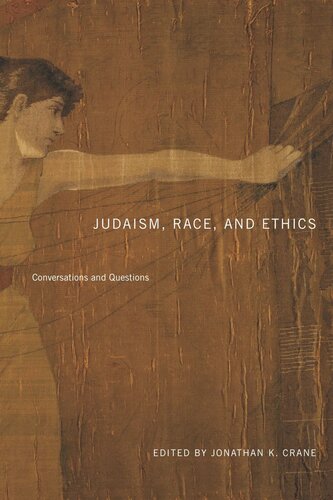

Most ebook files are in PDF format, so you can easily read them using various software such as Foxit Reader or directly on the Google Chrome browser.
Some ebook files are released by publishers in other formats such as .awz, .mobi, .epub, .fb2, etc. You may need to install specific software to read these formats on mobile/PC, such as Calibre.
Please read the tutorial at this link: https://ebookbell.com/faq
We offer FREE conversion to the popular formats you request; however, this may take some time. Therefore, right after payment, please email us, and we will try to provide the service as quickly as possible.
For some exceptional file formats or broken links (if any), please refrain from opening any disputes. Instead, email us first, and we will try to assist within a maximum of 6 hours.
EbookBell Team

4.3
98 reviewsRecent political and social developments in the United States reveal a deep misunderstanding of race and religion. From the highest echelons of power to the most obscure corners of society, color and conviction are continually twisted, often deliberately for nefarious reasons, or misconstrued to stymie meaningful conversation. This timely book wrestles with the contentious, dynamic, and ethically complicated relationship between race and religion through the lens of Judaism.
Featuring essays by lifelong participants in discussions about race, religion, and society— including Susannah Heschel, Sander L. Gilman, and George Yancy—this vibrant book aims to generate a compelling conversation vitally relevant to both the academy and the community. Starting from the premise that understanding prejudice and oppression requires multifaceted critical reflection and a willingness to acknowledge one’s own bias, the contributors to this volume present surprising arguments that disentangle fictions, factions, and facts. The topics they explore include the role of Jews and Jewish ethics in the civil rights movement, race and the construction of American Jewish identity, rituals of commemoration celebrating Jewish and black American resilience, the “Yiddish gaze” on lynchings of black bodies, and the portrayal of racism as a mental illness from nineteenth-century Vienna to twenty-first-century Charlottesville. Each essay is linked to a classic Jewish source and accompanied by guiding questions that help the reader identify salient themes connecting ancient and contemporary concerns.
In addition to the editor, the contributors include Sander L. Gilman, Annalise E. Glauz-Todrank, Aaron S. Gross, Susannah Heschel, Sarah Imhoff, Willa M. Johnson, Judith W. Kay, Jessica Kirzane, Nichole Renée Phillips, and George Yancy.